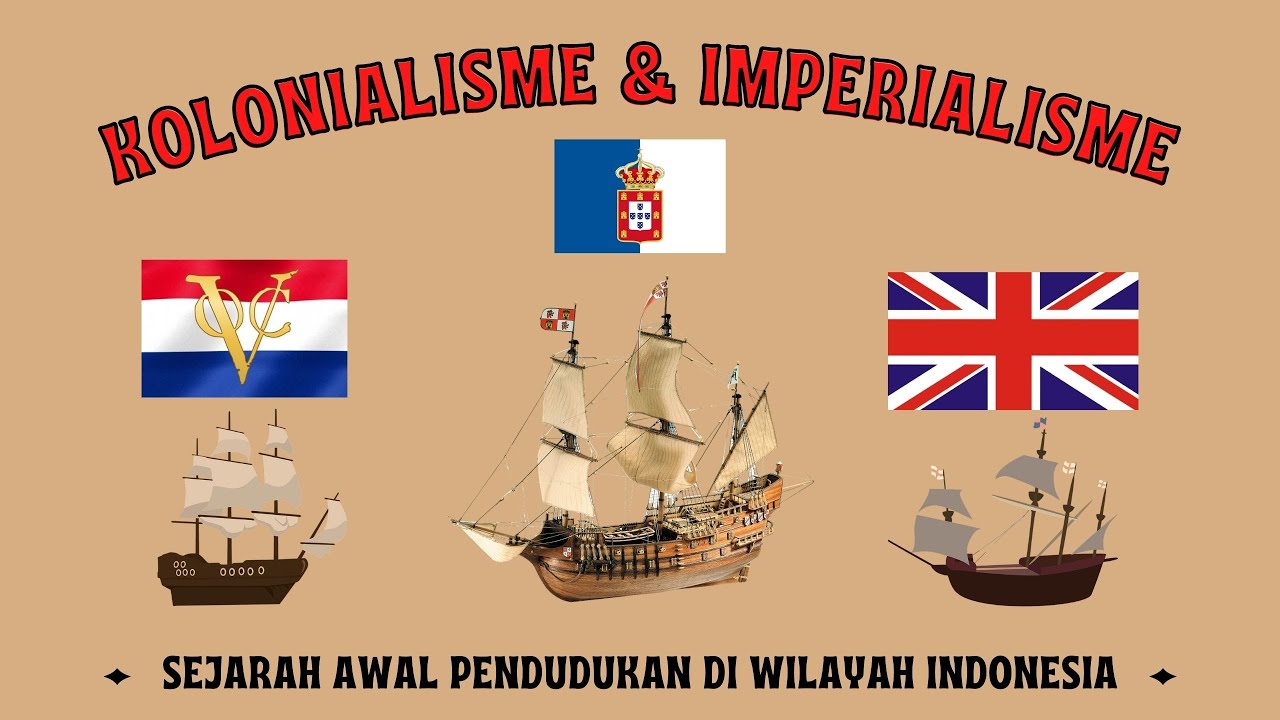Santo Fransiskus Xaverius di Ternate dan Moro (Part.3)
Summary
TLDRThe transcript explores the historical context of the Catholic Church's involvement in the Maluku Islands during the Portuguese colonization in the 15th and 16th centuries. It discusses the Church's hierarchical stance on politics, the arrival of the Portuguese, and their mandate to spread Christianity following the Treaty of Tordesillas. Key figures, such as Vasco da Gama and missionaries like St. Francis Xavier, played significant roles in establishing Catholic communities despite facing persecution. The narrative highlights the complex relationships between the Portuguese and local leaders, illustrating the cultural exchanges and lasting impacts of missionary efforts in the region.
Takeaways
- 😀 The Catholic Church has historically avoided direct political involvement, focusing instead on spiritual matters.
- 📜 The Portuguese played a significant role in the Catholic Church's history in the region, particularly in Maluku.
- 🌍 The Portuguese established a strong presence in the Indonesian archipelago during the 13th century, influenced by their earlier colonial victories.
- ⛪ The church's involvement in spreading Christianity was formalized through treaties, particularly the Treaty of Tordesillas in 1494.
- ⚔️ The Portuguese were invited by the Sultan of Ternate to assist against threats from rival kingdoms, strengthening their influence in the area.
- 🏰 Forts like Fort Santo Lukas and Fort Sao Paulo were established to protect Portuguese interests and facilitate missionary work.
- 🕊️ The relationship between the Portuguese and local rulers was complex, leading to both alliances and conflicts.
- ✝️ Significant missionary efforts were initiated, with clergy like Pastor Simon Fas contributing to the spread of Catholicism in Halmahera.
- 🔍 The struggles faced by missionaries, including persecution and social tensions, highlight the challenges of establishing faith in diverse cultures.
- 💔 The legacy of martyrdom and the sacrifices made by missionaries, such as Francisco Alvarez and Simon Vas, shaped the church's history in the region.
Q & A
What was the primary role of the Catholic Church in relation to politics according to the transcript?
-The Catholic Church, hierarchically, does not engage in politics, meaning it does not participate in the pursuit of political power.
How did the arrival of the Portuguese influence the Catholic Church's activities in Maluku?
-The entry of the Catholic Church into Maluku was closely linked to the Portuguese presence, who sought to spread Christianity in regions unfamiliar with it.
What significant decree did Pope Alexander VI issue, and what was its purpose?
-Pope Alexander VI issued the Inter caetera decree in 1493, which mediated territorial claims between Portugal and Spain and mandated the spread of the Gospel in non-Christian territories.
What military conquests did the Portuguese achieve in the early 16th century?
-The Portuguese conquered Goa in India in 1510 and the Malacca Peninsula in 1511, establishing significant trade routes and missionary bases in the region.
What was the relationship between the Portuguese and the Sultanate of Ternate?
-The Portuguese were invited by the Sultan of Ternate to help defend against external threats, leading to the establishment of strong ties and the construction of forts for protection.
Who was Pastor Fernando Lopez Projo, and what role did he play in Ternate?
-Pastor Fernando Lopez Projo was sent from Goa to Ternate to serve as a missionary, establishing a Catholic presence in the region.
What were the challenges faced by the Portuguese and missionaries in Maluku?
-The Portuguese faced hostility from local rulers and communities, leading to violence against missionaries, including the martyrdom of Pastor Simon Vas.
How did Antonio Galvao contribute to the missionary efforts in Maluku?
-Antonio Galvao supported the mission work by establishing infrastructure, revitalizing the local church, and enhancing relations with local leaders.
What was the significance of Saint Francis Xavier in the context of this transcript?
-Saint Francis Xavier was a key missionary figure who worked in Ternate and sought to strengthen the faith of local Catholics amid difficult circumstances.
How did local communities perceive the Catholic missionaries according to the transcript?
-Local communities, particularly those of the Mamuya tribe, viewed the Catholic missionaries with suspicion, especially during conflicts, leading to violent confrontations.
Outlines

此内容仅限付费用户访问。 请升级后访问。
立即升级Mindmap

此内容仅限付费用户访问。 请升级后访问。
立即升级Keywords

此内容仅限付费用户访问。 请升级后访问。
立即升级Highlights

此内容仅限付费用户访问。 请升级后访问。
立即升级Transcripts

此内容仅限付费用户访问。 请升级后访问。
立即升级5.0 / 5 (0 votes)






